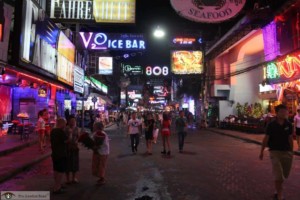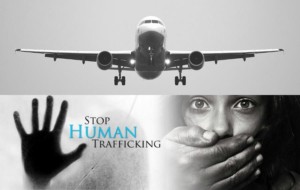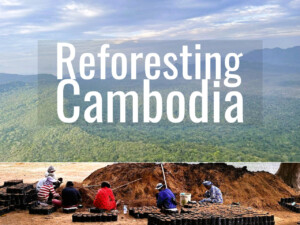Is orphanage tourism a form of modern slavery?
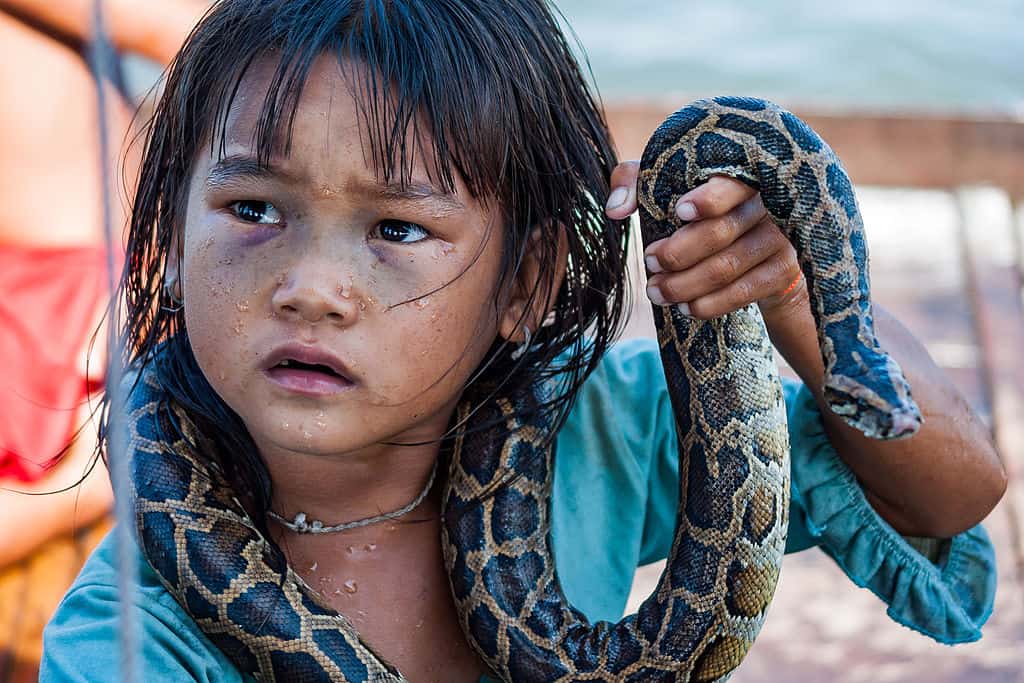
Slavery!?
Modern slavery is widely practiced in the tourism supply chain of developing countries, according to Australian academics Joseph M. Cheer, Kent Goldsworthy, Leigh Mathews, and Shivani Kanodia.
In their July 19, 2017 article for The Conversation they set their sights on orphanage tourism.
Here are some excerpts:
According to the Global Slavery Index, in 2016 about 45.8 million people were subject to some form of modern slavery. Most of them are in developing countries where worker rights are poorly protected.
[…]
Tourism is often linked to sustainable economic development that can make communities better off. This is encouraged by governments keen to maximise tourist spending.
International tourism in developing countries is neither all good nor all bad. Beyond its potential to do good, however, tourism and its association with modern slavery is rarely highlighted.
In particular, little is made of the harsh conditions that many who service the industry tend to face. This is more apparent in some forms of tourism than others, and especially where worker rights and social justice concerns are systematically compromised.
Some of the strongest links between slavery and tourism are found in sex tourism, orphanage tourism and in the services supply chain.
[…]
Good intentions, money and the desire to help are essential ingredients for the orphanage tourism industry. Usually, the traveller constructs a view of “the problem” where they are an important part of “the solution”. Tourists then inadvertently become agents in an exploitative business model that profits the orphanage owner while compromising the well-being of children.
Many argue that the “bad” orphanages, those run by unscrupulous operators who knowingly and systematically exploit children for profit, shouldn’t negate the work of the “good” orphanages. However, there is no such thing as a good orphanage – only best-practice child-care facilities. These are the ones that provide high-quality residential care.
Children below the age of 12 are still best off in family-based care and not in institutions. When orphanages are financially supported through donations and volunteer programs, the best interests of children are compromised.
In the worst cases, children are exploited through forced labour, enforced begging, human trafficking, or sex tourism. In other cases, exploitation occurs by way of forced interaction with volunteers, loss of rights to privacy and increased risk of physical and sexual abuse.
In coming to terms with the growth of orphanage tourism in developing countries, the usual absence of families and communities requires an urgent rethink. Instead of promoting the tourist as part of the solution, it should be emphasised that visits to orphanages very often lead to modern slavery conditions.
The emotional entanglements of orphanage tourism
If you think “slavery” is too strong a word to apply “very often”, a paper by New Zealand academic Tess Guiney in The Geographical Journal describes “layered emotional entanglements”.
According to the abstract to the paper there is a disconnect between what a tourist would like to believe and the reality of the experience for both the tourist and the children:
Indeed, many volunteer tourists are motivated from a distance to volunteer at orphanages, being drawn to the possibility of engaging with children. However, their emotions within these encounters are far less examined, and the reality of the lifestyle these children live in is often far more upsetting than expected.
This more moderate thinking is reflected in the field by NGOs and social enterprises such as Friends-International whose website describes the problem thus:
All the evidence points to [orphanages] being actually bad for children, causing physical, mental and long term emotional harm and stunting development. In fact 80% of the children in orphanages are not true orphans, and could (and should) be reunited with their families. However, we are sold the idea of the orphanage being best for them, despite the fact that supporting institutional care is much more expensive than supporting family based care! A whole industry has grown around this in countries such as Cambodia, exploiting not just the children (the ‘commodity’ in this transaction) but also the good intentions of volunteers, led to believe they can really make a difference to these children’s lives as a part of their holiday.
James Sutherland, International Communications Coordinator of Friends-International based in Phnom Penh, Cambodia told PATA Conversations:
There is extensive research into the physiological and psychological impact upon children who are living in institutions with short term volunteering. Here in Cambodia, there are orphanages with vulnerable children, many of whom have special needs. These short-term relationships are a bad thing. Someone fresh out of high school may have empathy but these children need skilled social workers and psychologists working with them.
On the well-meaning travellers who would volunteer at such place, Sutherland said:
It’s kind of like people switch off the common sense buttons in their heads when they arrive in a developing country. Their behavior doesn’t parallel how they would behave at home. If a busload of tourists showed up at a care institution in the US or England, played with the children, taught them local songs, and fed them candy, they’d probably be arrested.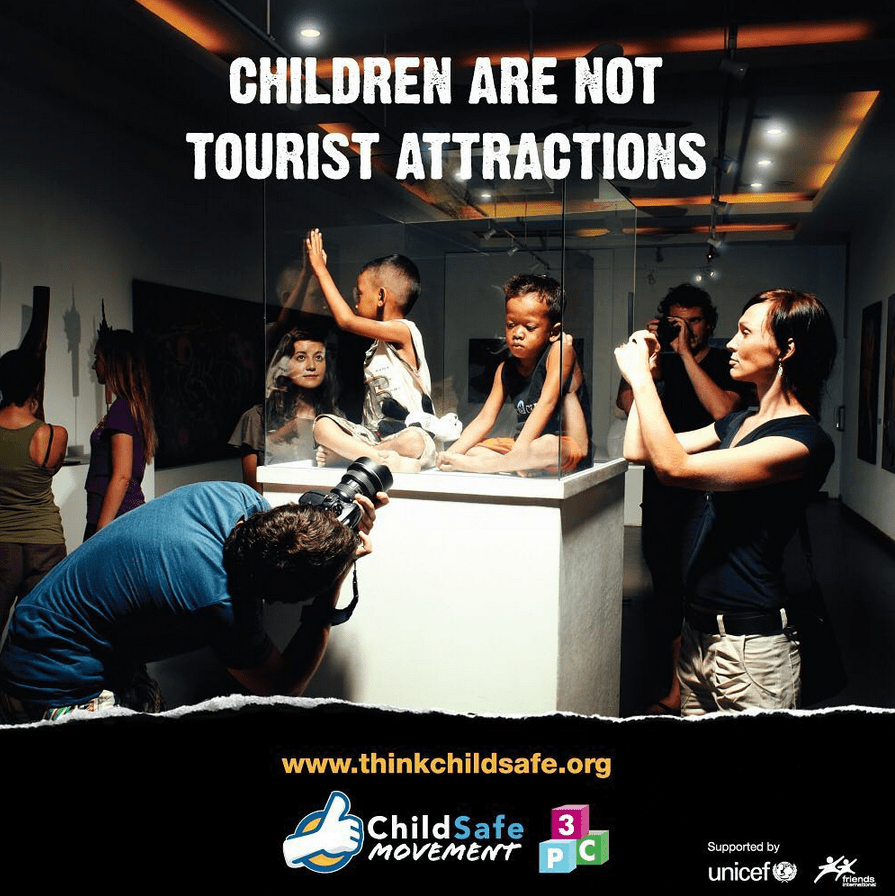
A holistic approach to eradicating orphanage tourism
Guiney rightly points out the problems associated with simply turning our backs on orphanages that engage in tourism. These include the fact that such practices cannot be halted completely because not everyone is aware of the downsides; ignorant travellers will continue to want to visit such places and ignorant or uncaring tourism industry stakeholders will continue to want to supply that demand. Furthermore, she warns that children risk ending up in worse situations if such orphanages lost funding and were closed.
Friends-International actively discourages orphanage tourism through its ChildSafe Movement. However, rather than engaging in mere virtue-signalling, Friends-International tackles root causes and offers solutions. Its “holistic approach” includes social services that provide appropriate care and support for orphans and their carers, under-privileged children and their families, and the communities in which they all live, and training and employment for appropriate-age youth in its sustainable social businesses. Friends-International says its most successful social businesses are its training restaurants in Cambodia, Laos, Thailand, Myanmar and Ethiopia. They train dozens of young people every year.
Whether or not orphanages deserve to be thought of as undertaking a form of modern slavery via their tourism product offerings, most travel & tourism stakeholders today would agree that there is very little, if any, upside to the practice of orphanage tourism.
Perhaps the common-sense approach tourism organisations should take, be they travel agents or tour operators, is to replace the option of orphanage visits with the recommendation to patronise a social business. This is more likely to provide the tourist a feel-good good-value experience and empower communities take care of their children.
Featured image: Disturbing. A little girl making money by posing with a snake in a water village of Tonle Sap lake, Cambodia. By CEphoto, Uwe Aranas via Wikimedia.
Related posts



